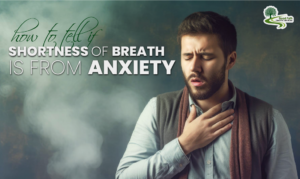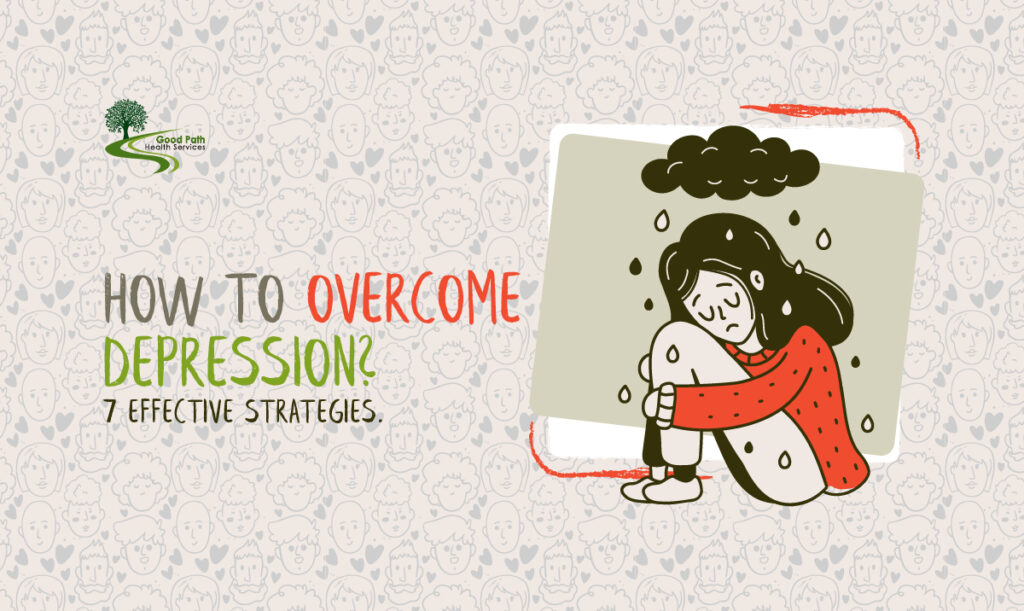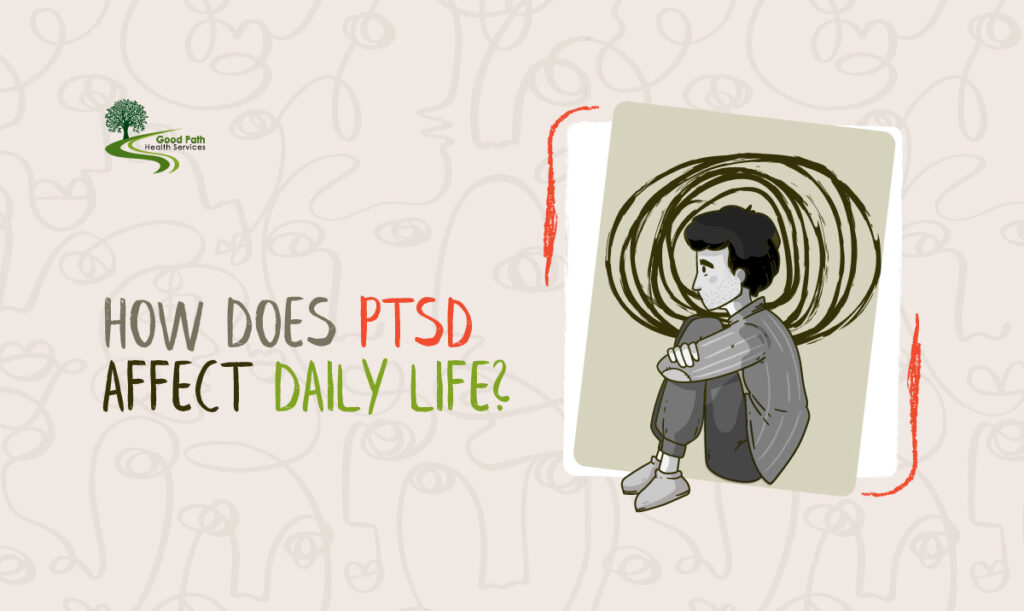
Shortness of breath is a frightening sensation. It’s the feeling of not being able to get enough air as if some unseen force is compressing the chest or throat.
For many people this symptom can be a sign of a serious medical condition.
But for others, particularly those with a history of anxiety it may be a sign of their mental health rather than a physical condition.
Knowing why you’re out of breath is important.
Misunderstanding might cause unnecessary panic or, on the flip side, could overlook an important signal from your body.
This post is about dismantling the connection between breathlessness and anxiety to help you know when to get medical advice.
Understanding Shortness of Breath in Anxiety
The link between anxiety and breathing difficulties is well-established.
When one gets anxious they go into fight or flight mode that triggers different body reactions.
One of the reactions is a shift in our breathing which can cause us to take quick and shallow breaths.
Understanding how our bodies react to anxiety allows us to see breathlessness as more than just a physiological obstacle.
The Physiology of Panic
Anxiety isn’t just a mental state but a whole-body experience.
The brain’s amygdala, which deals with our emotions, activates the sympathetic nervous system when it senses danger.
In doing so, it kick-starts a survival-mechanism chain of events such as an increase in your heart rate and alteration in breathing styles. Whenever you panic your body needs more oxygen to prepare for action.
Even though the rapid breathing that often accompanies anxiety may disrupt the delicate balance of carbon dioxide and oxygen levels in the blood.
When this balance is thrown off it can cause a number of physical symptoms with shortness of breath being one of the most common.
How to Tell if Shortness of Breath Is From Anxiety? – Symptoms to Watch For
Shortness of breath in anxiety is often accompanied by other telltale signs of a panic attack. These can include:
- Rapid heartbeat or palpitations.
- Sweating and feeling flushed.
- Tightness in the chest.
- Dizziness or lightheadedness.
- Tingling in the extremities.
It’s the mix of these symptoms that can help tell if it’s anxiety causing shortness of breath or something else.
Differentiating Anxiety-Related Shortness of Breath from Other Causes
Anxiety may have many physical symptoms associated with it, but let’s not make this condition the blame in every case.
Some medical conditions can look like the breathing issues from anxiety. So, it’s important to get a sense of the symptoms and what might set them off.
Medical Conditions to Keep in Mind
Some conditions that can cause shortness of breath include:
- Asthma: Even if you are not aware of previous asthma attacks, sudden onset of shortness of breath could indicate this common chronic respiratory condition.
- Allergies: This can result in a difficulty in breathing which is the same as one experienced during anxiety.
- Heart Issues: Heart problems such as a heart attack or arrhythmia, can cause shortness of breath. Chest pain or pressure should not be ignored.
- Pulmonary Embolism: A blood clot in the lung can lead to severe shortness of breath often with other symptoms like coughing up blood or chest pain.
Important Differences in Symptoms and Triggers
The distinction between anxiety-induced shortness of breath from these conditions lies in the symptoms and the context in which they arise.
Asthma for instance is more likely to occur in response to specific triggers like exercise or exposure to allergens whereas anxiety-related shortness of breath can seemingly happen out of the blue during a period of increased stress.
The length and power of the symptom also matter though.
If shortness of breath is persistent, sudden or comes with other concerning symptoms it’s essential to seek immediate medical attention to rule out potential life-threatening conditions.
Guidelines for Managing Anxiety-Induced Shortness of Breath
Coping with anxiety-related shortness of breath requires a personalized approach.
Here are some techniques that can help manage these distressing episodes:
1. Breathing Exercises and Relaxation Techniques
It is highly effective when one practices mindfulness and relaxation methods for anxiety and its symptoms.
Deep breathing exercises can help restore the balance of oxygen and carbon dioxide in the blood, easing the sensation of breathlessness.
The 4-7-8 technique also known as abdominal breathing could be a good example here.
2. Get Licensed Help and Therapy Options
For those struggling with chronic anxiety, professional help is invaluable.
Anxiety management tools like cognitive-behavioral therapy (CBT) among others are available through talk therapies.
In some cases medication is prescribed. Selective serotonin reuptake inhibitors (SSRIs) or benzodiazepines might also control symptoms on occasions like these.
Empowering Readers
If you’re experiencing shortness of breath and anxiety symptoms, a great move is to learn more about the condition.
Know what breathing difficulty signifies in cases of anxiety, how it can be caused and distinguished from other causes.
With this self-consciousness combined with advice from medical professionals, you will have the ability to make sound choices regarding your health and well-being.
Self-Knowledge And Seeking The Right Help
If you’re unsure about the cause of your shortness of breath, seeking the advice of a healthcare professional is the wisest course of action.
A doctor may undertake investigations to establish if the symptoms emanate from anxiety or whether there is another underlying medical condition that should be addressed.
Reassurance and Support
Believe in yourself and never hesitate to mention your worries to healthcare providers.
Their role is to reassure you as they assist in managing your health.
It’s normal to worry about anxiety symptoms and asking for help is okay.
Contact us at Good Path Health Services today.
We can provide you with the resources you need to understand and manage anxiety-related shortness of breath.
The Bottom Line
Feeling out of breath can be quite complex, with roots in both the mind and body.
By recognizing the potential for anxiety to manifest in this way, you’re taking the first step toward managing your health more effectively.
Don’t ignore your symptoms, and don’t dismiss them as “just anxiety.”
Treat each instance of shortness of breath with the seriousness it deserves while also recognizing the powerful role that mental health can play in physical well-being.
Learning to read your body’s signals and matching these with your context and history is essential to self-aware health management.
But never hesitate to seek medical advice when in doubt, for in health, as in life, it’s always better to be safe than sorry.
FAQs
Can Xanax make anxiety worse?
Yes, Xanax can sometimes make anxiety worse instead of reducing it.
Is generalized anxiety disorder neurodivergent?
Generalized anxiety disorder is not neurodivergent.
Is shortness of breath worse in the morning?
Shortness of breath can sometimes be worse in the morning.
Can I get shortness of breath from alcohol?
Shortness of breath after drinking alcohol can occur.
Can I get shortness of breath after eating?
Shortness of breath can sometimes occur after eating.
What is the best sleeping position for shortness of breath?
Sleeping in an elevated position such as with a few pillows under your head and upper body may help alleviate shortness of breath.



